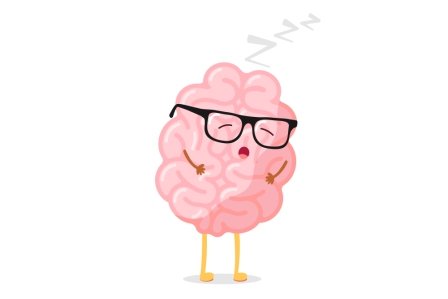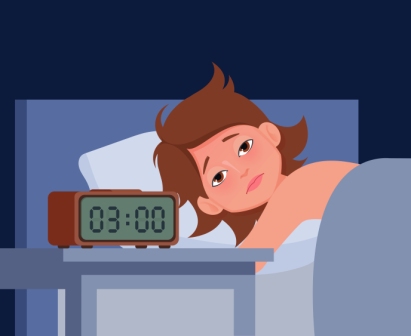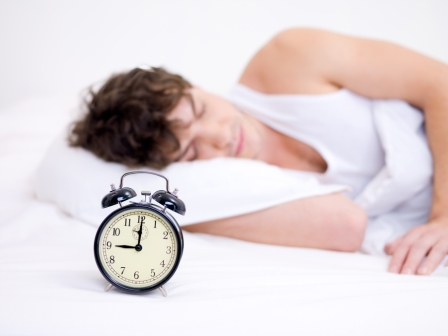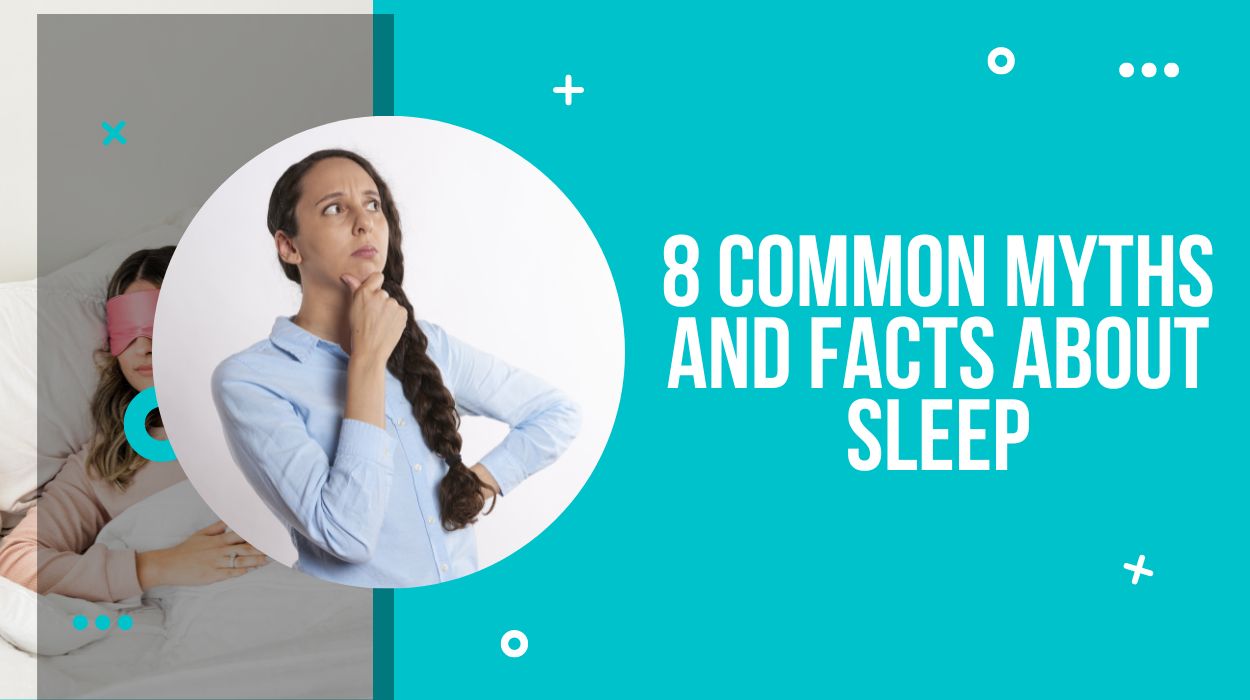Sleeping is one of the most basic necessities in everybody’s life. Without having a sufficient amount of sleep on an everyday basis our body can lead to various illnesses.
Not having proper sleep leaves everyone feeling tired, irritated and less refreshed. Which not only ends up in one feeling irritated the entire day but also affects concentration, work, relationships and more.
Even though we all know how important sleep is still in the developing and changing world there have been a growing amount of myths regarding sleep. This system of myths is not something that has been happening just in recent times.
Some of the myths have been there for years and have been passed on from person to person. Which not only provide misconceptions but also try to change facts with mixed up stories.
These myths led to change in people’s perspective towards a crucial topic like sleep. These myths can actually end up being believed by people and resulting in people facing physical and mental health problems through wrong information.
So in this article, I’m going to cover various myths and the actual facts about sleep and what needs to be followed and what doesn’t. Some of the myths and facts about sleep are as follows:
Myth 1: Alcohol assures a good night sleep

Fact: Sometimes alcohol does decrease the amount of time it requires to fall asleep. Due to which people assume it provides an overall great sleep. In Fact, the quality of sleep an individual has after the consumption of alcohol is comparatively poorer than one without alcohol.
Most of the time people tend to wake up feeling tired and some even face headaches. Also, in some cases, people face the issue of not being able to sleep due to alcohol.
So, this myth is false. Alcohol doesn’t help you sleep better, rather you will wake up more tired.
Myth 2: During sleep, your brain rests

Fact: One of the most common misconceptions people have is that the brain rests while we are asleep. But in reality, the brain carries on to be active and controls several functions of the body like breathing. Various activity patterns change during different stages of sleep. Therefore, it’s believed the brain doesn’t rest but it remains active even in the deepest sleep minds process information.

Fact: There are a large number of illnesses and sleep orders one can face if they are not able to get good quality and quantity of sleep every night. As per studies the quality and quantity of an individual’s sleep have a major relationship with various health problems.
Like poor sleep affects several growth hormone secretions which have been linked to obesity. With more decrease in hormone secretion the possibility of weight gain increases.
Also, during the sleep cycle, the blood pressure usually tends to fall so when sleep gets interrupted. It leads to health problems like cardiovascular and hypertension.
In terms of depression, about 90% of people dealing with depression have complained about the bad sleeping quality. Similarly more health problems are likely to grow when a person doesn’t get sufficient sleep.
In Fact, if an individual doesn’t get the right amount of sleep there is a visible change in a mood like feeling cranky and not refreshed and this just happens after not getting a good sleep just after a day.
So, it is essential to follow the requirement of 7 to 9 hours of sleep and the above-mentioned fact is completely untrue.
Myth 4: Falling asleep anywhere and anytime is an indication of a good sleeper

Fact: This is probably one of the myths which are highly believed by people. But the reality is being able to sleep anywhere and anytime actually shows signs of insufficient sleep.
This myth is actually harmful because it tries to put a positive reflection on the people who sleep anywhere. While it is a symptom of insomnia.
The main goal of healthy sleeping isn’t to fall asleep in any circumstances or situation. But to have a good quality sleep at the regular time.
Myth 5: Snoring isn’t harmful and is a common issue, especially surrounded by men

Fact: In many cases, snoring can be harmless but in some, it can be a symptom of apnea which is a life-threatening sleep disorder. Especially if snoring is accompanied by various sleepiness during the daytime.
Apnea is a breathing disorder that breaks sleep and causes an issue for people to breathe. Basically, it causes cessation of airflow at night. Apnea can cause major cardiovascular risk if not treated at the right time.
Snoring can also have a bad impact on your bad partner and the loud and frequent noise disturb others as well. However, now there are various techniques available to solve issues related to snoring depending on the level of concern.
Devices like (PAP) positive airway pressure helps in keeping the airway open in order to (OSA) Obstructive sleep apnea. Even several mouthpieces and exercises are also available to eliminate or reduce snoring for many people.
Myth 6: Not moving during your sleep at night is a sign of Good Sleeper

Fact: Small movements during the time of sleep can occur and are normal. However, having major movements can be a concern. Below-mentioned is a list of concerns one should have if they face one or more of these mentioned issues:
- Violent of Aggressive moment
- Chronic or Prolonged
- Facing nighttime awakenings
- Troubling your bed partner
As we know the brain doesn’t rest and is still active and helps in the functioning of other parts. Due to which having few movements in the middle of sleep are actually common and natural.
But it can turn into concern if the above-mentioned steps take place in the process.
Myth 7: Timing of sleep doesn’t matter as long as you are getting enough hours of sleep

Fact: The timing of sleep does matter and it is always better to sleep during the dark hours at night. Having sleep during the night helps in aligning the circadian rhythm of the body.
This circadian timing plays a major role in the quality of sleep. Along with that it also affects cardiovascular function, mental health, metabolism and several other elements of health.
You cannot stay the entire night up and try to complete your sleep by being asleep during the daytime and expect no health issues. This is one of the crucial reasons why it is advised to have a good sleep with the required hours during the night.
Therefore, the timing of sleep does matter and should be taken seriously by everyone.
Myth 8: The older you get, the sleep hour need decreases
Fact: Getting older has nothing to do with the amount of sleep an individual needs. A human body needs adequate hours of sleep which is about seven to nine hours.
Though it is common to witness changes in the sleeping patterns of a person as we grow, the amount of required sleep doesn’t and shouldn’t change. Usually, older people tend to get less sleep during nighttime as they frequently wake up more, but this doesn’t make their need for sleep any less than younger people.
So, this myth of older people’s sleep needs decreasing over time is completely untrue. As sleep is essential for everyone.
FAQs
What are the different types of sleep disorders one can face due to lack of sleep?
There are more than 80 types of sleeping disorders an individual can face due to lack of sleep. Some commonly found sleep disorders among people are:
- Sleep Arena
- Narcolepsy
- Insomnia
- Restless leg syndrome and more.
What are some of the signs of poor sleep among people?
Some commonly found signs of poor sleep among people are frequently waking up in the middle of the night, not being able to feel refreshed after sleep, snoring or gasping for breath and more.
What is the minimum hour of sleep one should get every night?
Everyone requires 8 hours of sleep. A human body needs 8 hours of sleep in order to maintain good health and also to make sure you are recharged to face the day with complete energy.
Conclusion
The world is filled with several myths and the topic of sleep is no less different. Though having myths is common, people should know about the actual facts as sleep is not something we should carelessly.
Everyone should have the essential amount of sleep every night no matter what age you are. The body needs rest and the ability to recharge which happens when you sleep peacefully.
Especially with the fast-moving world with such high pressure and challenges faced by students, adults and everyone. One should principally focus on having peace at night as the amount of sickness caused due to lack of sleep is immoderate.
I hope this article has helped you in providing all the necessary facts one requires in their life regarding sleep. Along with all the crucial information.


